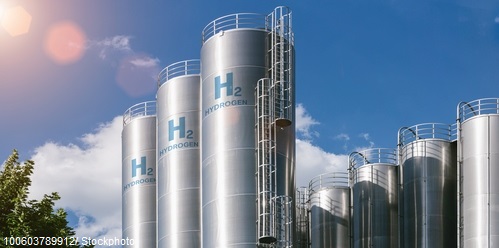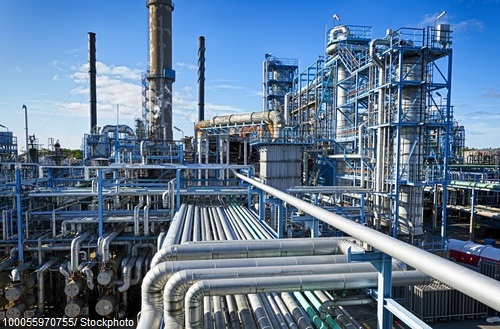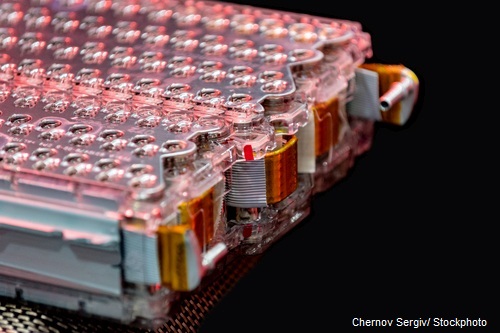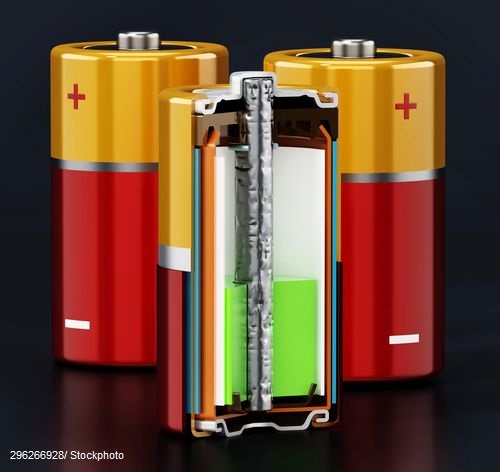South Korean HD Hyundai Infracore targets green equipment market
HD Hyundai Infracore, the construction equipment manufacturer of the South Korean HD Hyundai Group, is pushing into the market of environmentally friendly equipment. This includes the launch of a small all-electric excavator for the global market next month. HD Hyundai Infracore, formerly Hyundai Doosan Infracore, will soon unveil the 1.7-tonne small excavator, which is powered by electric motors and batteries instead of a diesel engine, according to industry insiders. In addition to pollution-free operation, noise and vibration are also said to be lower thanks to the electric drive. The batteries for the excavator come from LG Energy Solution, the world’s second-largest e-vehicle battery manufacturer. For battery related products, KC certification, KCs certification or other Korean product certification is often required to be approved for the Korean market.
The excavator, which the company says will be suitable for country homes and farms, will cost around US$35,000 in South Korea. HD Hyundai Infracore presented the first prototype as early as 2020 and planned to introduce the electric excavator at the beginning of this year. However, the launch was delayed for marketing reasons. In addition, HD Hyundai Infracore and group subsidiary HD Hyundai Construction Equipment plan to develop more environmentally friendly machinery powered by batteries or hydrogen. According to the business magazine KED Global, the two companies will produce excavators with electric drives weighing up to 14 tonnes. HD Hyundai Construction plans to mass-produce a 1.9-tonne electric excavator next year. Larger construction machinery weighing more than 20 tonnes will be powered by hydrogen from 2026. Recently, HD Hyundai Construction also began developing plug-in hybrid construction machines that use a battery as an energy source for short distances and then switch on a diesel engine.
Feel free to contact us any time if you need assistance or have any questions regarding Korean certifications like KC, KC EMC, KCs, KCs for explosion safety products or KGS factory registration.
Tel. Europe: +49-69-271 37 69 261
Tel. US: +1 773 654-2673
Email: info@korea-certification.com
For more information you can download our free brochure “Korea Certification Made Easy – The Booklet“.
Hanwha Impact develops gas turbine capable of burning up to 50 per cent hydrogen
Hanwha Impact Corporation, a South Korean petrochemical company, has developed a technology that allows medium-sized gas turbines to burn a fuel mixture containing up to 50 per cent hydrogen. The announcement was made by the relevant Ministry of Trade, Industry and Energy (MOTIE) in mid-June. Hanwha Impact held a demonstration of its gas turbine at the Daesan plant in Seosan city, South Chungcheong province, on the same day. The gas turbine burns natural gas (LNG) and hydrogen to generate electricity. In collaboration with Korea Western Power, Hanwha Impact successfully developed the technology to blend up to 50 per cent hydrogen in medium-sized (up to 80 MW) gas turbines. The new technology reduces air pollutants such as CO₂ and nitrogen oxides compared to conventional natural gas turbines, according to a Hanwha Impact spokesperson. Pressure vessels used in the industrial use of gas usually require KGS registration to be approved for import in Korea.

In the future, Hanwha Impact plans to collaborate with West Incheon Combined Power Generation to apply hydrogen technology to a 150 MW turbine. Hydrogen blending is a building block of the national plan to reduce greenhouse gases. The Ministry of Trade, Industry and Energy therefore expects further large-scale investment in domestic and international hydrogen production and related infrastructure. The director of the ministry, Lee Ok-heon, expects the expansion of hydrogen power generation to 2.1 per cent in 2030 and 7.1 per cent in 2036.
The Korea Gas Safety Corporation (KGS) is a governmental organisation under the Ministry of Trade, Industry and Energy (MOTIE). Gas safety regulations in Korea began in 1974 with the passage of the Compressed Gas Control Act. In 1995, the Institute of High Pressure Gas Safety was established, and after several restructurings, the Korea Gas Safety Corporation (KGS) was established in 2001. One year later, KGS was affiliated to MOTIE. KGS was accredited as a Korean Notified Body in 2006 and was also accredited to conduct KCs certification and testing of explosion-proof electrical equipment.
We offer certification services for all product areas, including KC certification for consumer products and especially electronics, KC EMC certification for electronic products and KCs certification for machinery, as well as KCs for explosion-proof products. We are at your disposal for all questions regarding Korea certifications.
Feel free to contact us any time if you need assistance or have any questions regarding Korean certifications like KC, KC EMC, KCs, KCs for explosion safety products or KGS factory registration.
Tel. Europe: +49-69-271 37 69 261
Tel. US: +1 773 654-2673
Email: info@korea-certification.com
For more information you can download our free brochure “Korea Certification Made Easy – The Booklet“.
Hanwha TotalEnergies completes construction of polyolefin elastomer pilot plant
At the end of June, Hanwha TotalEnergies announced the completion of construction work on a pilot plant for the production of highly functional copolymers. These materials are used in industrial components such as car parts and cable insulation, according to the company. The pilot plant in Daesan, about 83 kilometres south of Seoul, will produce polyolefin elastomers (POE). Furthermore, tests for processing and manufacturing POEs will be conducted there, the company said in a press release. Equipment and components used in this field usually require KC Certification or KGS Factory Registration to be approved for import and distribution in Korea.

Hanwha TotalEnergies is a 50:50 joint venture between South Korea’s Hanwha Group and France’s TotalEnergies SE. Together, they have invested about US$26 million in the pilot plant, with the goal of producing about 200 tonnes of POEs annually. POE is a highly functional plastic, known for its flexibility like rubber but with the resilience like plastic. POEs are used in interior and exterior automotive parts, cable and wire insulation, coatings and medical products. POE has also recently found an application as a coating for solar cells. Within the Hanwha Group, Hanwha Solutions Corp. is responsible for the solar cell business.
Feel free to contact us any time if you need assistance or have any questions regarding Korean certifications like KC, KC EMC, KCs, KCs for explosion safety products or KGS factory registration.
Tel. Europe: +49-69-271 37 69 261
Tel. US: +1 773 654-2673
Email: info@korea-certification.com
For more information you can download our free brochure “Korea Certification Made Easy – The Booklet“.
Korean battery manufacturers announce additional joint ventures in the USA
Samsung SDI, for example, will establish a joint venture with General Motors, joining other South Korean companies that are expanding their market position through partnerships with global automakers. SDI, the battery division of the Samsung Group, recently signed a memorandum of understanding with the US carmaker in Michigan to build a battery factory. As recently as last year, GM was planning to build its fourth EV battery factory in Indiana together with LG Energy Solutions (LGES). The two companies already operate the Ultium Cells joint venture. For battery related products, KC certification, KCs certification or other Korean product certifications are often required to be approved for the Korean market.

However, LGES remained sceptical about executing the plan, citing the uncertain economic situation and the formation of a union at the Ultium site in Ohio as reasons. GM therefore looked for a new partner for the project and found one in Samsung SDI. During the January 2023 quarterly earnings announcement, Samsung SDI also stated its intention to enter into a second joint venture with another US carmaker. In addition to the new partnership with GM, Samsung SDI is already working with Stellantis.
LGES, on the other hand, started building a battery factory in Ohio together with Japan’s Honda Motor, as well as planning to set up a joint venture with Ford Motor in Turkey. Ford, on the other hand, initially planned to build the Turkish site with SK On, but failed to do so for unknown reasons. Instead, Ford announced that it would set up a production facility for lithium iron phosphate batteries under licence from China’s CATL. Although SK On and Ford continue to reaffirm their cooperation and are building a factory in Kentucky with the already existing joint venture BlueOval SK, doubts remain about the long-term cooperation. SK On, meanwhile, is planning to build a battery factory in Georgia together with Hyundai Motor Group.
“Korean battery makers and US automakers had maintained exclusive partnerships in the past, but the diverse demand for batteries for different types of vehicles and regions made it difficult for a single battery maker to fully meet the requirements of a specific automaker,” said Chang Jung-hoon, an analyst at Samsung Securities. Certifications for the Korean market are a complex hurdle and difficult to navigate due to different authorities and certification systems. With over 15 years of experience in the certification business, MPR International GmbH is your best point of contact for competent service when it comes to exporting to Korea. For example, KC Safety is relevant for electronics and household products, which are mostly intended for consumers, as well as products for children and babies.
Feel free to contact us any time if you need assistance or have any questions regarding Korean certifications like KC, KC EMC, KCs, KCs for explosion safety products or KGS factory registration.
Tel. Europe: +49-69-271 37 69 261
Tel. US: +1 773 654-2673
Email: info@korea-certification.com
For more information you can download our free brochure “Korea Certification Made Easy – The Booklet“.
LG Chem starts mass production of single crystal cathodes
South Korea’s LG Chem Ltd announced in late June that it has begun mass production of the next generation of a new cathode material with a high nickel content. The material consists of a single crystal structure and is designed to boost the performance of EV batteries. The first shipment of the single crystal cathodes from the Cheongju plant to customers is scheduled to begin in July, the chemical company wrote in a press release. LG Chem’s Cheongju site is located 112 kilometres south of Seoul. In addition, LG Chem plans to expand single-crystal cathode production at its Gumi plant in the southeast of the country with a capacity of 50,000 tonnes annually. For battery related products, KC certification, KCs certification or other Korean product certification is often required to be approved for the Korean market.

The single crystal cathode material consists of different metals such as nickel, cobalt and manganese in a single component. It is considered a key component for extending the life and capacity of the next generation of batteries. Cathodes are the main element of lithium-ion batteries and account for 40 per cent of production costs. Conventional cathodes have a polycrystalline structure consisting of a collection of tiny metal particles that often crack during charging. These cracks can lead to the formation of gases in the battery and shorten the battery’s life. Single-crystal cathodes increase the energy density of a battery and could boost the performance of EVs by up to 10 per cent, according to LG Chem. The single-crystal cathodes are installed in pouch-shaped and round cells, including LG’s next-generation 4680 batteries.
Feel free to contact us any time if you need assistance or have any questions regarding Korean certifications like KC, KC EMC, KCs, KCs for explosion safety products or KGS factory registration.
Tel. Europe: +49-69-271 37 69 261
Tel. US: +1 773 654-2673
Email: info@korea-certification.com
For more information you can download our free brochure “Korea Certification Made Easy – The Booklet“.


